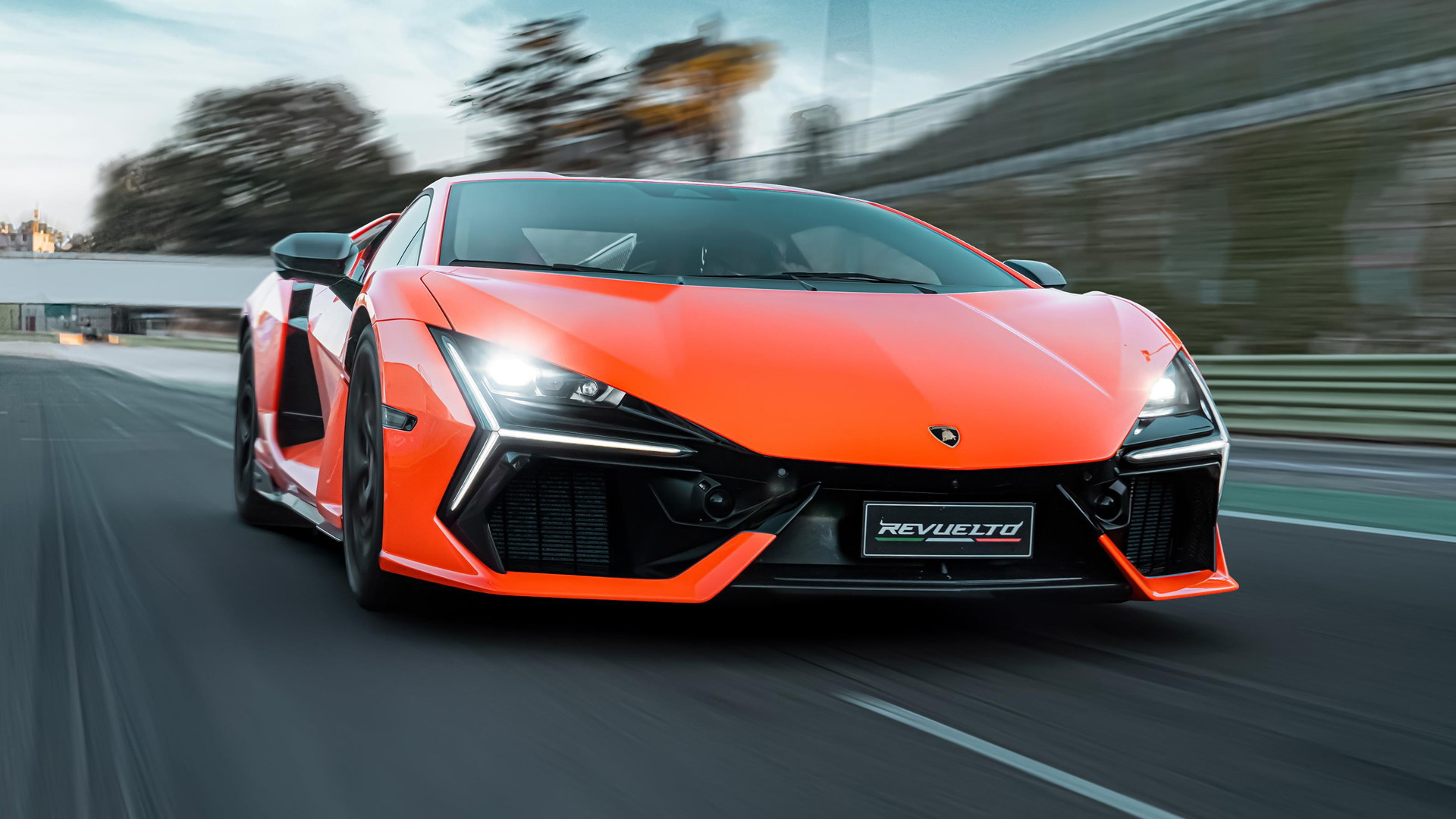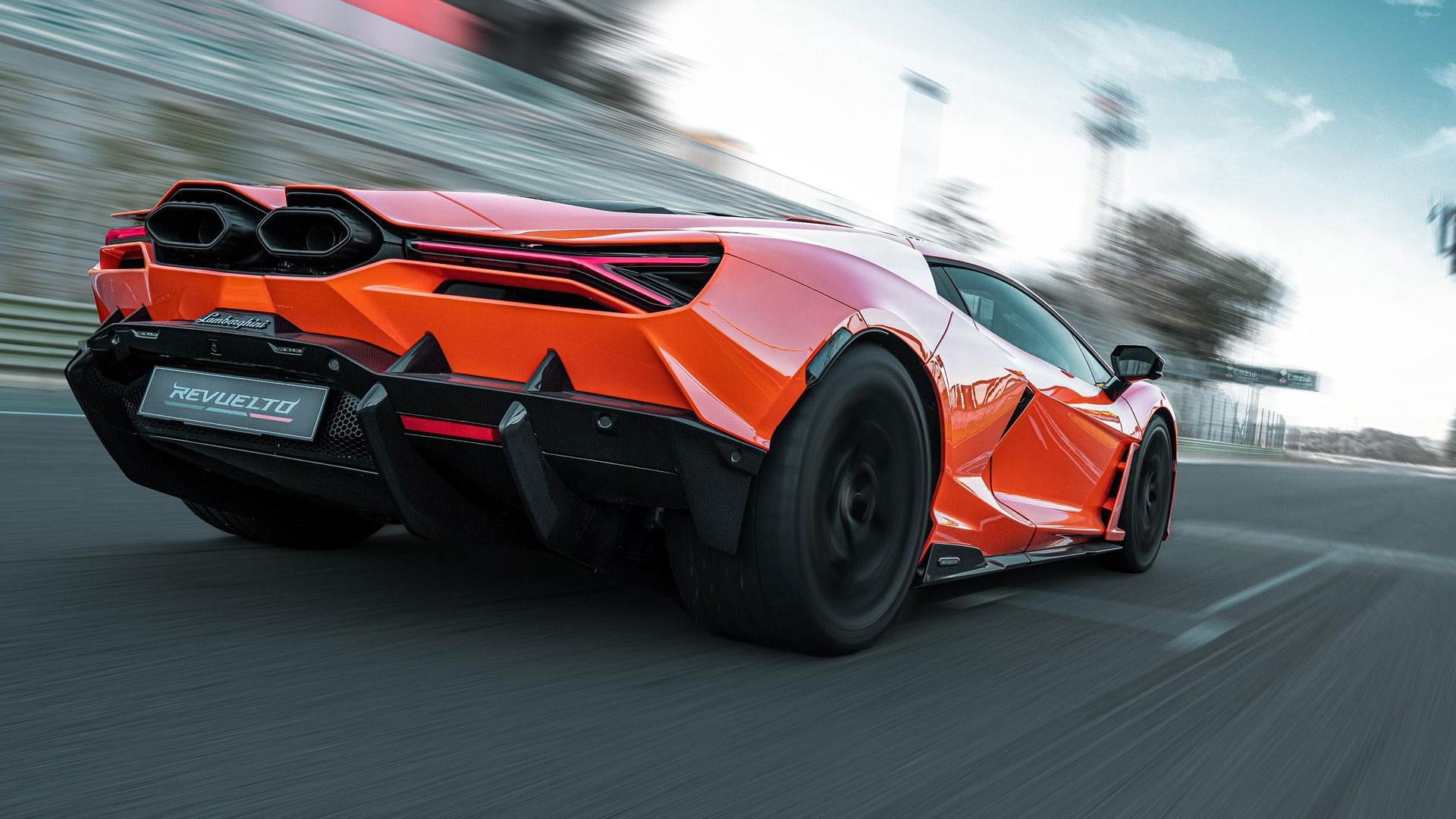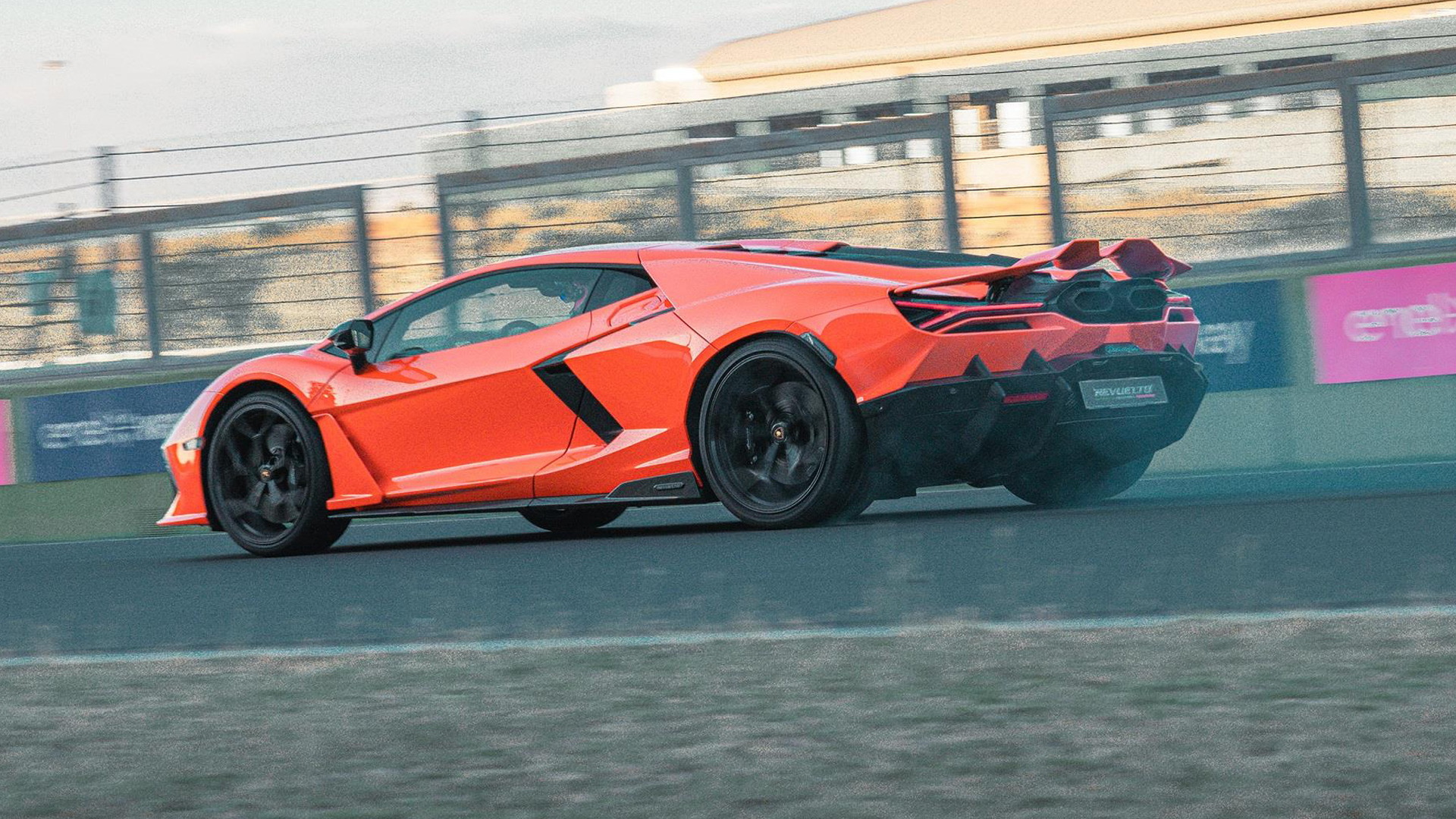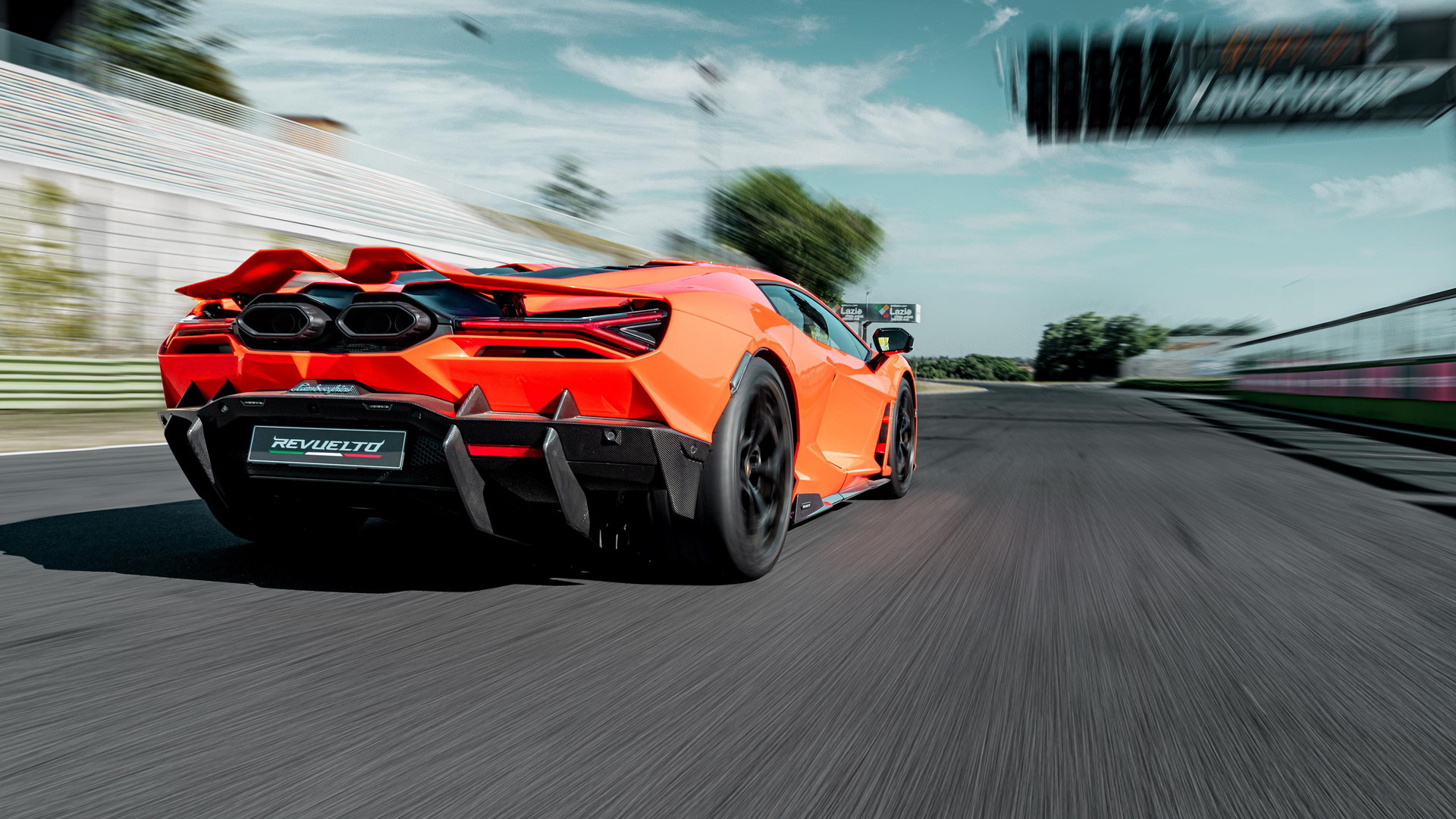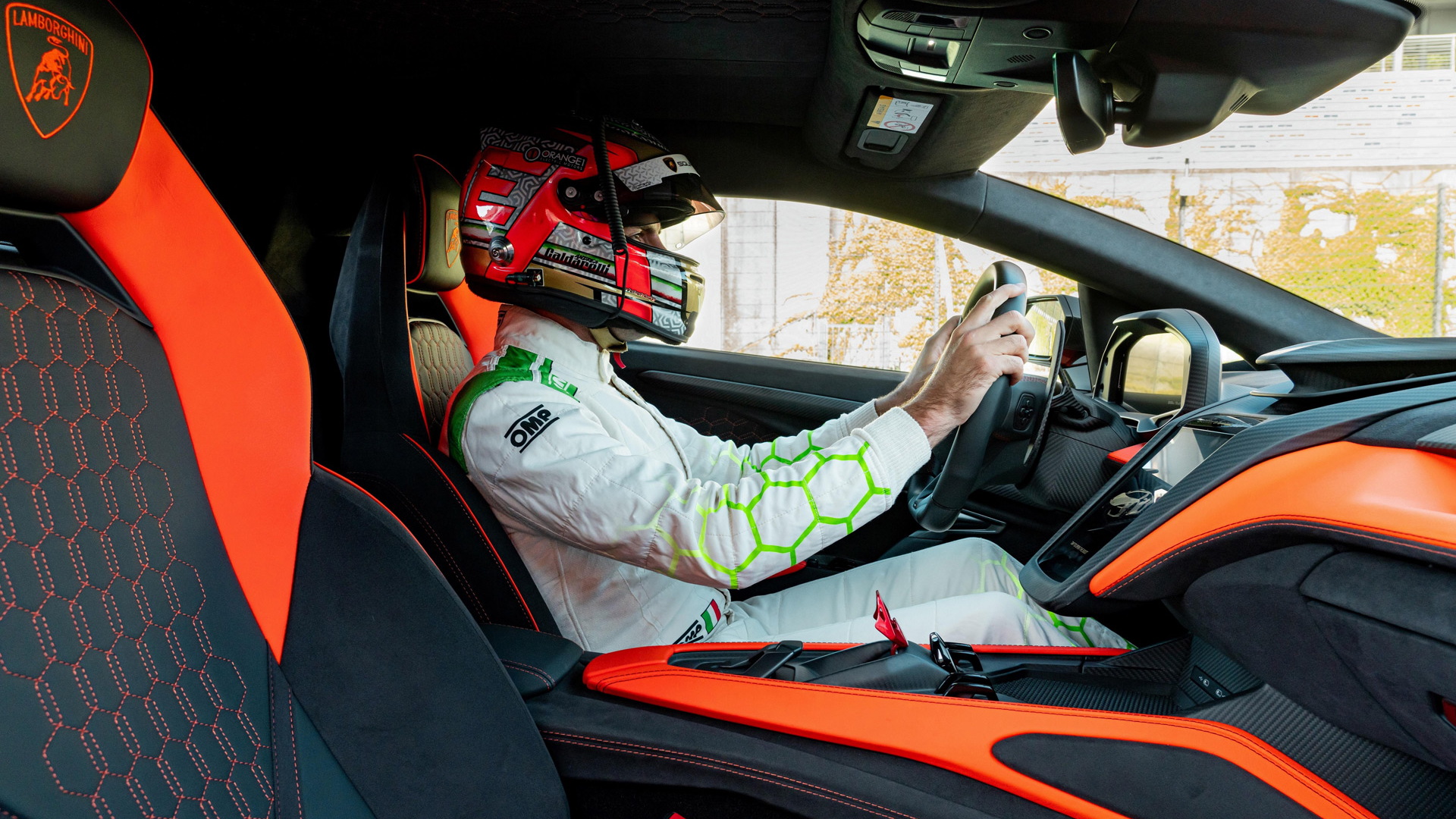Lamborghini's Revuelto supercar is just weeks out from starting deliveries, but factory racing driver Andrea Caldarelli already had a chance to test one at an empty Vallelunga circuit.
Video released by Lamborghini on Friday shows Caldarelli's experience behind the wheel of the 1,000-hp plug-in hybrid.
The Revuelto is the latest in the line of Lamborghini V-12 supercars, and Caldarelli is among the confirmed drivers to pilot Lamborghini's new SC63 LMDh race car next year. He will contest the 2024 IMSA SportsCar Championship, in the GTP class, but the SC63 will also compete in the Hypercar class of the 2024 FIA World Endurance Championship.
“The Revuelto is a truly extraordinary supercar which is capable of expressing uncommon power but also excellent drivability on the track,” he said after taking a spin.
The Revuelto made its debut in March, and while it may appear similar to its Aventador predecessor, it represents a ground-up redesign that in addition to electrification includes a new carbon-fiber tub, a new 8-speed dual-clutch automatic transmission, and a newly developed V-12. Lamborghini's plant in Sant’Agata Bolognese, Italy, also needed to be upgraded to accommodate production of the car.
The powertrain consists of a 6.5-liter V-12 and trio of electric motors. Two of the electric motors are at the front axle and work independently, and the third is integrated with the rear-mounted transmission. Lamborghini quotes performance numbers of 2.5 seconds in the 0-62 mph run and a top speed of 218 mph. A 3.8-kwh battery also means a small electric range is possible. A similar setup, likely with a twin-turbocharged V-8 instead of the V-12, is expected to feature in plug-in hybrid successor to the Huracán due late next year.
Lamborghini hasn't announcing pricing for the Revuelto in the U.S., but in other markets the car is priced from about 500,000 euros (approximately $530,000). Deliveries are scheduled to start in the fourth quarter of 2023. Anyone looking to take delivery better be prepared to wait (or pay hefty markups on the used market) as the car's production run for the next two years already has been allocated.
